Strategic Sustainability Report

2022/2023




2022/2023


In alignment with Niagara Health's 2023-2028 Strategic Plan, Transforming Care, the Walker Family Cancer Centre (WFCC) strives to put People First. This includes team members, patients and families that all contribute to the value represented at the clinic.
The WFCC focuses on best practice that support exceptional healthcare providers and state-of-the-art equipment. There have been many new programs, clinics and trials that have added value to the care provided to patients and families who choose WFCC.
The Niagara region is growing and our goal is to provide patients with an opportunity to seek care close to home. We also understand that each person who visits our clinic is unique, and there is a need to identify social health determinants that contribute to the success of their healthcare journey.
The team at WFCC is collaborating more than ever to develop a fulsome strategy that will support the residents of Niagara. Together, with our community, Hamilton, Niagara, Haldimand and Brant healthcare partners, as well as the governance of Ontario Health, we are working to demonstrate financial stewardship in our program design and development.
― Hippocrates
Dr. Michael Levesque Chief of Oncology
Medical Director, WFCC
Tracy Fazzari
Chief of Oncology
Medical Director, WFCC
Tracy Fazzari
 Director, Patient Care Oncology and Palliative Care
Director, Patient Care Oncology and Palliative Care
"To cure sometimes, to treat often, to comfort always."
EXTRAORDINARY CARING. EVERY PERSON. EVERY TIME.
At Niagara Health, Extraordinary Caring is what our patients, their families, our volunteers, our teams, and our community need and deserve. Caring is so much more than care. Both the physical and emotional part of caring is at the heart of our purpose.

We know that the most advanced equipment in the world isn’t enough, it takes more to put a smile on a lonely face or warm the spirit of someone fighting overwhelming odds. It takes a personal and genuine commitment to caring, a true belief that we can really make a difference in people’s lives. Caring is about attitudes, behaviours and actions - not only for our patients and their families, but also for each other as care providers and team members. It includes attentive listening, being respectful and sensitive, providing comfort, being patient and more. It’s why we take the time to say hello, to stop and listen, to be kind to one another. Why we give a little extra care and attention when it’s needed most.
This is our community. And in the face of every person, we see reflections of our own families – our sons and daughters, parents and grandparents.
We are Niagara Health. And we’re helping build A Healthier Niagara by contributing to the overall health of our region in more ways than one:
In population health by helping people to stay healthy, get better, live well with disease and cope with end of life.
In the economic health of our communities as one of the largest employers in Niagara and in leading and promoting health innovations that will contribute to broader economic prosperity in the region.
In the health of our environment through our efforts in green, sustainable initiatives.
In being good partners, creating and maintaining healthy and productive partnerships.
COMPASSION IN ACTION DRIVEN BY OPTIMISM ACHIEVING AMBITIOUS RESULTS
Extraordinary Caring. Every Person. Every Time. That’s exactly what we’re working so hard to do
Our ambitious and realistic plan will unite us over the next five years in focusing our efforts on key areas and initiatives that strengthen the care we provide for our community. It was time for us to look inward, recognizing that without our teams, there would be no hospital (which exists to serve patients).
Strengthening our patient-centred culture
Building an inclusive and collaborative workplace


Equipping our team members with the tools for success
Improving how patients move across Niagara Health
Integrating data and research
Embedding continuous quality improvement
Refining our regional model
Implementing interprofessional team best practices

Enhancing and leveraging technology
Our goal is to intentionally plan for the next five years of cancer care at Walker Family Cancer Centre. This will be done in alignment with the Niagara Health Strategic Plan, Transforming Care and the Ontario Cancer Plan VI to ensure consideration is given for organizational resource utilization.
In 2022, the WFCC purchased a new CT scanner with state-ofthe-art detector technology & AIbased image reconstruction, which produces higher quality 3D/4D images for radiation treatment planning. The Canon Exceed LB will positively improve cancer patient survival rates & quality of life by enabling higher precision radiotherapy treatments.
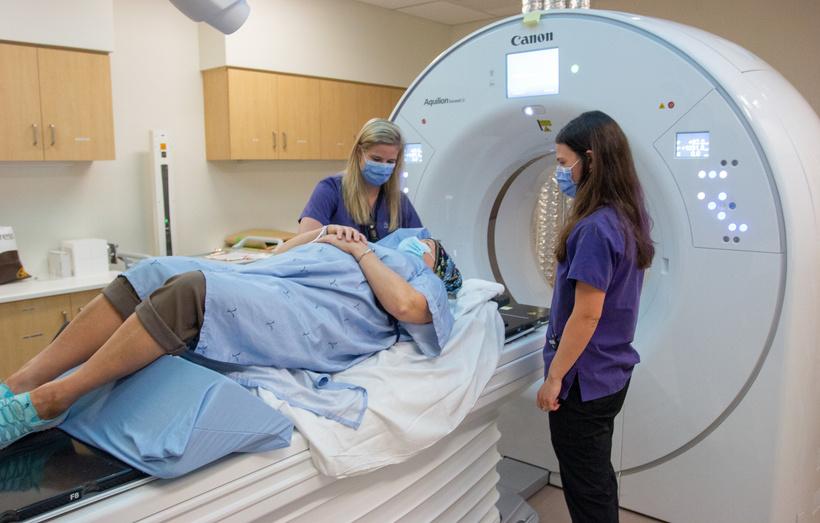
AiM is designed to build community and increase socialization and creativity at the WFCC. Patients and caregivers are invited to take part in free classes taught by arts professionals, including, but not limited to, acrylic and watercolour painting, drawing, floral arranging, interactive museum lectures and more.
A pilot follow up clinic was proposed and led by one of our clinical pharmacists in order to mitigate the risks of treatment toxicity and ensure adherence to medication delivery. This aligned with the CCO "enhancing the delivery of take home cancer drugs in Ontario."

The first ever multidisciplinary strategic planning session was celebrated this year. This quality led event focused on advancement in treatment, communication and value based care. This event was attended by a special consultant and Harvard lecturer Jon Haber.
Supportive Care, Radiation Oncology and Medical Oncology in partnership with Niagara Health ICT, has led the way to provide virtual care visits for appropriately identified patients. These visits ranged from consults to follow up appointments.
The Walker Family Cancer Centre has been intentional when it comes to including patient partners in many committees, quality reviews and events. The insight provided by patient partners is highly valued and led the way to postive change within the clinic.
The Walker Family Cancer Centre brought radiation treatment and other oncology services to Niagara that had not previously been available.
This state-of-the-art hospital provides emergency care, surgical care, and other acute care services, and also introduced new and enhanced regional programming for Niagara residents. Thousands of local cancer, heart and mental health patients now have access to vital healthcare services right here in our region, and no longer have to travel outside of Niagara.
As a community health broker at Niagara Region Public Health, Lara Lorge never expected to find herself on the other side of her profession. However, that’s exactly what happened when she was diagnosed with Stage 3 uterine cancer in February 2021.
Since opening in 2013, the WFCC has supported more than 9,000 radiation therapy visits that would have otherwise taken place outside Niagara.

“It was like having family and friends provide me with the best care possible. From the physicians to the nurses and volunteers, everyone was extremely compassionate and kind.”
― Lara Lorge
The radiation program is supported by a varied group of skilled clinicians, including radiation oncologists, radiation therapists, clinical specialist radiation therapists (CSRT), medical physicists, physics associates, biomedical engineers, registered nurses (RNs), personal support workers (PSWs), clerical staff and volunteers. The radiation program has had over 200+ care plans to best serve its patients, and had over 22,200 treatment visits in the 2022/23 fiscal year.
Canon Exceed Large Bore CT Simulator
4D imaging and motion management
Artificial Intelligence-based contouring
Pending Oncology Information System migration from Hamilton to Niagara
Pending Radiation Treatment Planning System upgrade
Pending (x3) Linear Accelerator replacements
Deep Inspiration Breathold surface-guided radiotherapy
Pending respiratory-gated radiotherapy
3D printing for custom patient-bolus
Since 2017, there has been rapid growth of the program with regard to disease site expansion and higher patient volumes. This has been partially attributed to the addition of two new radiation oncologists in 2022.
The Walker Family Cancer Centre welcomed a second neuro-themed CSRT position, and moved forward with planning for a student educator and clinical resource position. These new roles will support both current staff, and clinical students from the MohawkMcMaster radiation training program.
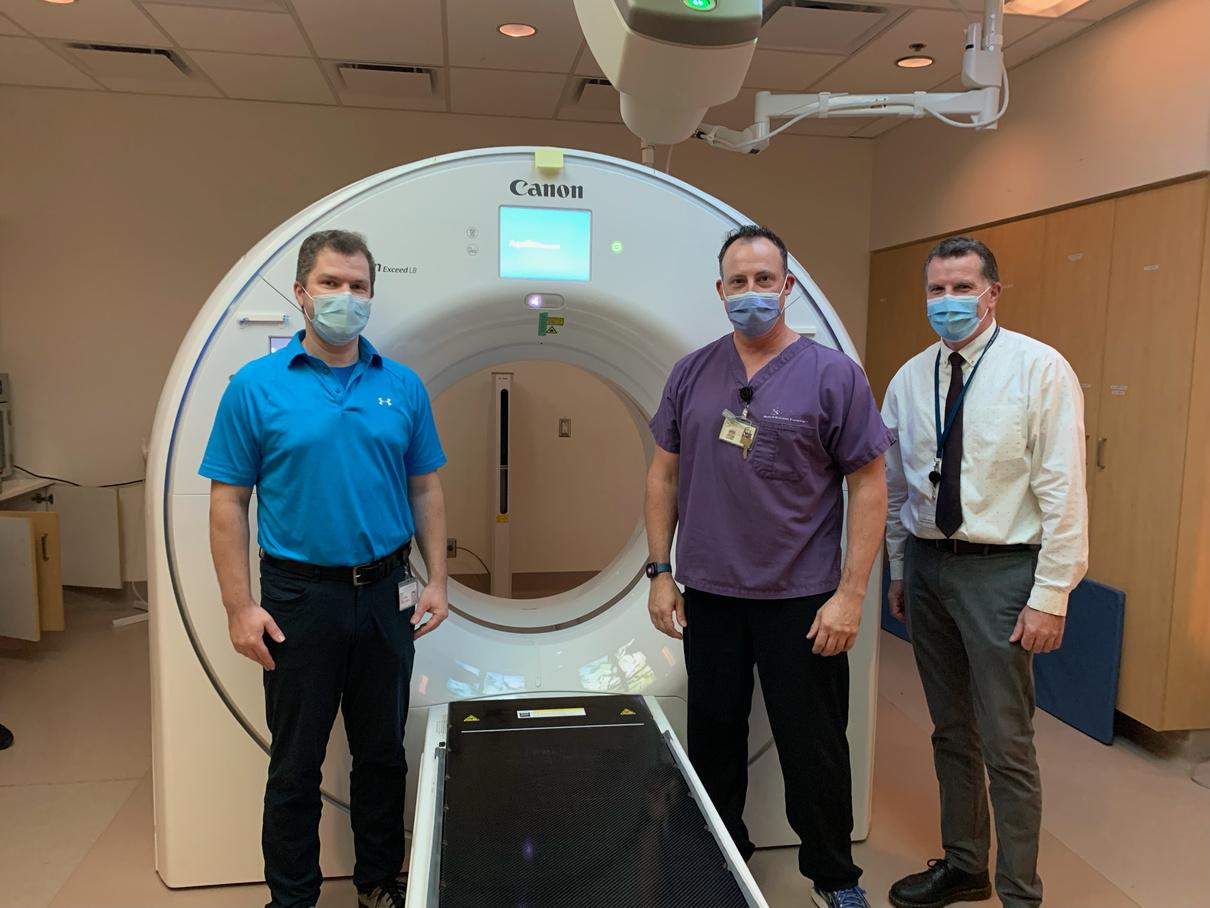
Ongoing studies and research in radiation medicine have resulted in publications, oral presentations, and participation in national and international conferences.
American Society of Radiation Therapy (ASTRO)
2014: Implementing an IGRT program in a small community cancer centre
2015: Photodynamic Therapy (PDT) with Porfimer
Sodium Sensitizer using HDR Planning Principles: A Single institution experience of an alternative cancer treatment
2021 WFCC Radiation Therapy Nursing Niagara
Health Team Award: Excellence in Nursing: Teamwork and Collaboration Award
2020 Excellence in Interprofessional Practice
Collaboration: WFCC OROC Team
Niagara Health Research Day
2018: An Early Experience Report Of The Orthopedic Radiation Oncology Clinic (OROC) at NH
2018: Hydration study: Charting bladder and hydration preparation for prostate patients
2021: Stereotactic Body Radiation Therapy (SBRT)
lung: Anatomical tumour location and set-up accuracy
2022: Identifying Fracture Risk: Benefits of OROC Assessment at Niagara Health, A Case Cost Analysis
2 ongoing oligometastatic trials: Comet 3 and Comet 10
2019 RTi3 Plenary Session Presentation: Identifying a Niche: Development of the Orthopedic Radiation Oncology Clinic
2018 Niagara Health Research Day People’s Choice
Award for Best Poster: “Enhancing Access to Care: An Early Experience Report of the Orthopedic Radiation Oncology Clinic at Niagara Health.”
Research by Dr. Eric Nguyen supports that SBRT can be used with a low risk of toxicity or complications, even when treating multiple tumours at once.
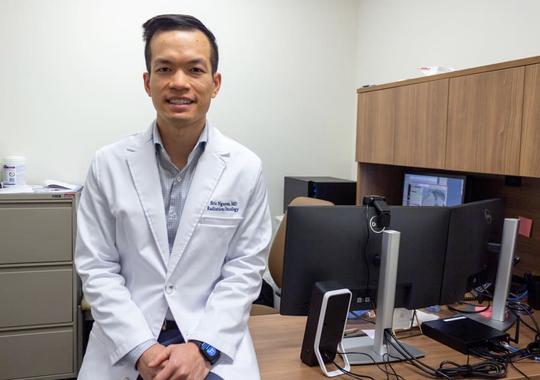
The first centre in Ontario to implement MOSAIQ IQ scripts, employ the use of a bladder scanner to assess prostate patient bladder volumes and implement daily huddles in radiation therapy
The first centre in Canada to employ surface-guided treatment using C-RAD

High-dose-rate radiotherapy implemented on two linear accelerators is pending, which will allow for faster treatment, minimize intra-fraction movement and the need for rescan
New Ontario Health Quality Based Funding (QBP) model implemented
In 2022, single-site CT simulator replacement was completed in 1.5 months without the need to refer patients to another cancer centre.
The WFCC Lung and Metastatic Disease Site Teams have successfully implemented SBRT and Fractionated Stereotactic Radiation Therapy (SRT). This advanced technology allows patients to receive targeted ablative radiation therapy within their community.
The WFCC Disease Site Teams have created Patient Education Videos which are available to view on Youtube. These professional videos were created in an effort to enhance the patient experience in the Radiation Therapy Department.
Implementation of the Radium 223 Program in Radiation Oncology in 2018 for the treatment of patients with Metastatic Prostate Cancer. Patients previously had to travel outside Niagara for this targeted treatment. This program highlights the collaboration between WFCC and the NH Diagnostic Imaging Department.
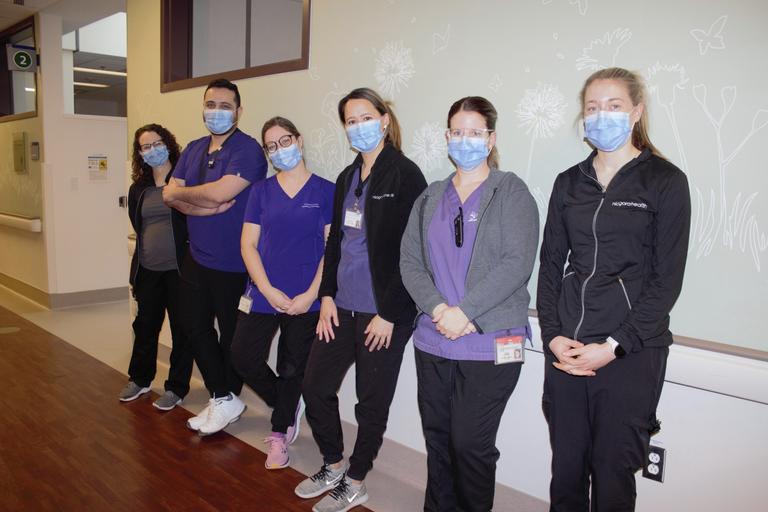
The WFCC medical oncology team includes fourteen medical oncologists and hematologists, nurse practitioners, registered nurses, personal support workers, clerk receptionists, cancer care clerks, a health records team, a clinical trials team, pharmacists, pharmacy technicians, social workers and dietitians.
Treatments
IV treatments
Oral treatments
Over 400+ care plans
Clinical Trials
5 ongoing clinical trials
4 solid tumours
The WFCC urgent response clinic continues to support emergency department avoidance for oncology patients and collaborates with home and community care partners with the goal to support patients at home and reduce admissions. New patient referral and triage processes are updated to provide a standardized approach ensuring patients have required testing completed prior to the first clinic visit.
On average, there are over 320 patients treated with IV systemic therapy on a weekly basis within the systemic clinic. In the medical oncology program, there were over 24, 800 in person and virtual visits conducted within the 2022/2023 fiscal year.
1 hematology
There has been a return of visits to our satellite offices in both Welland and Niagara Falls to support the care closer to home initiative.
There is a specialized group of oncology nurses to help navigate through the patient care journey.
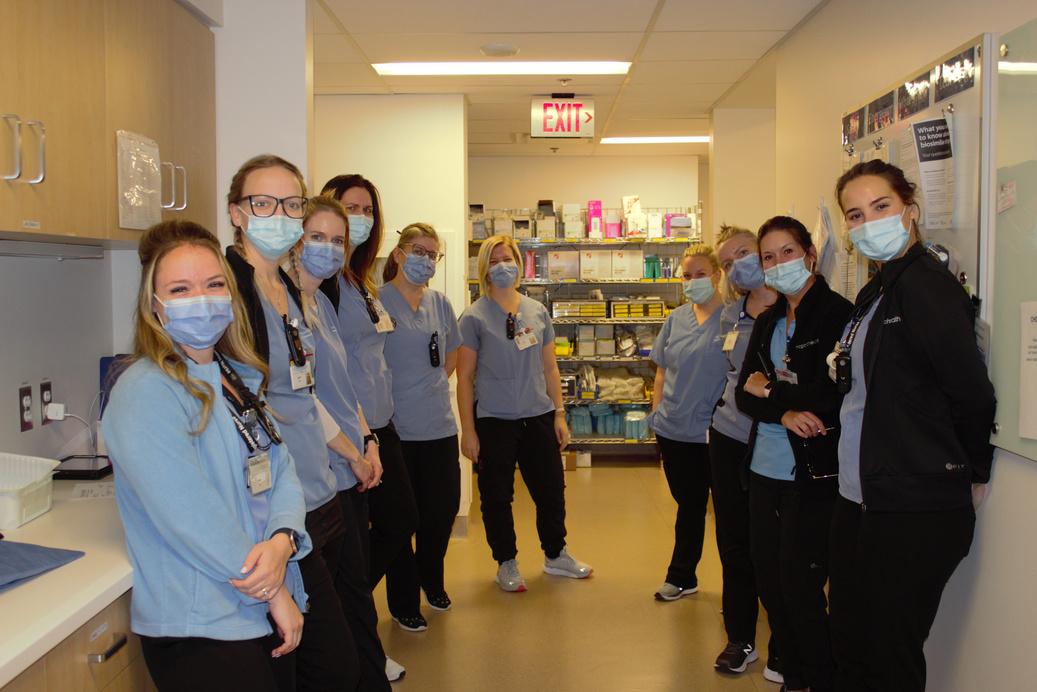
Many diagnostics and procedures are performed onsite as outpatient procedures and through the urgent response clinic. Nurse practitioners (NPs) provide support for physicians to decrease wait times and expedite diagnoses. NPs lead many procedures performed in the clinic. These procedures play a crucial role in diagnosis and symptom management while ensuring patient comfort.

Lung Diagnostic Assessment Program (LDAP) including malignant effusion clinic
Prostate Diagnostic Assessment Program (PDAP) including prostate biopsies
The procedures performed on an outpatient basis include:
Bone marrow biopsy
Thoracentesis
Paracentesis
Fine Needle Biopsy
Urgent Response Clinic led by NP for ED avoidance and helping patients with symptom management in real time.
The LDAP and PDAP are designed to improve the quality of care and decrease wait times for patients within the respective disease site. The programs also streamline diagnostic testing by using evidence-based diagnostic pathways in order to improve the patient experience and treatment outcomes.

The Supportive Care team at the WFCC includes a dietitian, spiritual care providers, social workers, palliative physicians, NP, RN, a patient education nurse and an Arts in Medicine coordinator. The team's primary focus is on the early identification and integration of a palliative approach to care during cancer illness trajectories. The team provides comprehensive support in symptom management, psychosocial support, nutrition guidance, spiritual care, and family support. Meaningful discussions about illness understanding and care goals help to facilitate patients' reflection on their own beliefs, wishes, and values. This year’s quality improvement project is increasing the number of Goals of Care conversations with oncology patients and families. In preparation for this, two Pallium palliative course offerings have been available for both NH and the WFCC physicians and staff including a Learning Essential Approaches to Palliative Care (LEAP) course and the serious illness conversation course.
There has been a concerted effort to improve parternships with organizations in the community in collaboration with the Niagara OHT (Ontario Health Team).

Additional training toward palliative care with the indigenous population has been pursued by staff to promote inclusivity through Lakehead University and BC Provincial Health Services Authority (PHSA). The SAN'yas course is offered through PHSA.
Supportive care is more than just pain management. It includes planning for the future and having difficult conversations.
A new palliative physician is joining the WFCC supportive care team in the summer of 2023!
There is a recognition that the success of a clinic is a direct result of intentional planning and commitment to the people who both provide and receive the care.
It is imperative that the entire team is engaged. There must be transparency toward the work being done, and work to strengthen partnerships that support this work.
There is an awareness of the impact the clinic has on the environment and are committed to promoting sustainability through eco-friendly practices such as waste reduction and monitoring energy consumption. By prioritizing sustainability, changes can be made that will reduce the environmental impact and improve the health and well-being of the community within the Niagara Region.
At the WFCC, there is a commitment to social sustainability, which involves promoting diversity, equity, and inclusion while supporting the well-being of the community. To demonstrate commitment, there is an aim to provide quality healthcare services to underserved groups and partner with community organizations to support education and local economic development. Services are also promoted services for to the WFCC staff that are offered by the organization through Occupational Health. This includes the newly implemented Code Lavender which provides a real-time response to staff in a crisis.
Governing sustainability involves the establishment of policies and practices that promote accountability within a no-blame culture. There is an aim to implement sustainability plans, report progress, and engage stakeholders and external partners to address challenges within the healthcare sector. This is done in collaboration with both clinical and administrative lead.
Environmental sustainability can improve operational efficiency, protect the health and safety of staff and community and ensure compliance. It is the duty of the WFCC to fulfill corporate social responsibility. Implementing procurement strategies that focus on energy-efficient equipment, equipment maintenance, scheduling, and staff training and awareness allows for better management and energy consumption. Paper utilitzation audits are also a useful tool that engages staff and stakeholders across the organization and promotes sustainable practices. Virtual consults also help to promote environmental sustainability by reducing transportation, energy consumption of equipment, and healthcare costs while improving access to healthcare for patients.
Management of energy consumption
The intentional selection of radiation treatment units that have more sustainability benefits
Waste reduction
Best practice and efficiency
Adhering to provincial guidelines and research to support a lean treatment delivery framework
Social sustainability helps to promote patient-centred care, staff engagement and retention, health equity, community engagement and partnerships, and responsible and ethical business practices. As social sustainability is prioritized, a healthcare system that supports the well-being of patients and staff within the Niagara Region can be created. There is an effort to work toward maintaining and increasing collaborative opportunities with partner institutions such as Brock University, McMaster University, Mohawk College and Niagara College. There is also hope to expand the online platform to provide better resources for patients that are easy to use and access. Staff have had the opportunity to participate in many wellness-focused activities including massage and yoga programs offered by Niagara Health and Hospice Niagara.
Health and wellness response to treatment
Reducing wait times for patients to start treatment
Investing in our team Community involvement
Aligning with the organization on a People First Directive
Gathering feedback through patient and staff surveys
Updating and adding new resources for patients
Partnering with programs within the organization for better outcomes
The Walker Family Cancer Centre can have a significant environmental and social impact. Governing sustainability can help manage impacts, reduce resource consumption, and promote a more sustainable healthcare system. An intentional leadership team can help to improve resource efficiency, build trust amongst partners, mitigate risks and promote innovation.
The WFCC is proudly supporting a dyad model within the clinic in alignment with the NH strategic plan and enhancing the horizontal partnerships within the organization. It is worth highlighting the commitment by leadership to financial stewardship and support of the quality-based procedure (QBP) funding models within both medical and radiation oncology.
Sustainable governance Business plan
Economic performance
Wait time metrics
Ensuring our corporate social responsibility
Promoting efficiency with human health resources
A breakeven analysis supporting financial sustainability
Accountability toward quarterly submission of reportable metrics to OH



The Walker Family Cancer Centre has a longstanding relationship with Cancer Care Ontario and the Hamilton Niagara Haldimand Brant (HNHB) Regional Cancer Program. These partnerships ensure comprehensive, integrated cancer care services are accessible locally to the people of Niagara.

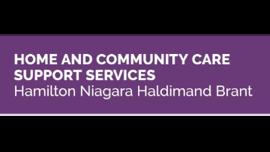






This program works together with a number of community and system partners. The success achieved is a result of these strong affiliations.


Thank you to our generous donors!
Over the past decade, the Niagara Health Foundation has been fortunate to receive support dedicated to the Walker Family Cancer Centre from nearly 32,000 donors and thousands of Big Move Cancer Ride and Rankin Run participants who have generously contributed to patient care equipment and programs. Their donations have enabled the Centre to purchase vital equipment such as chemotherapy recliners, ultrasound scanners, endoscopy equipment and a CT Simulator.
In addition to these essential items, donor support has helped fund programs such as the Arts in Medicine program, which brings together patients, artists and clinicians to explore the connections between creativity and wellness.
We thank you for your continued support in our efforts to build a sustainable future.


